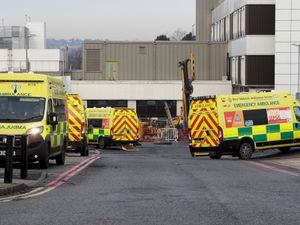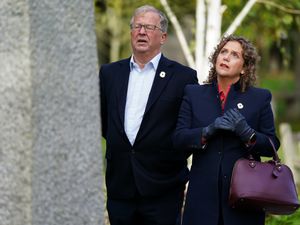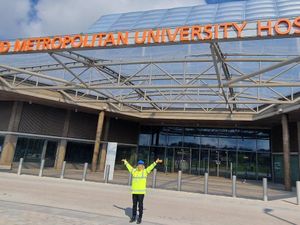Ambulance staff concerned over redeployment of unvaccinated colleagues
Some West Midlands ambulance staff have raised concerns about unvaccinated colleagues being redeployed to work with them, it has been revealed.

Mandatory vaccination law passed by the government requires NHS workers who deal face-to-face with the public to have received two doses of the Covid vaccine. Around 4 per cent of West Midlands Ambulance Service (WMAS) staff have not yet had two jabs.
Workers who have not met the criteria by April 1 could be sacked or moved to another part of the service if they do not meet one of the exemptions.
Those exempt include people under 18, those in receipt of a medical exemption, those who have participated in a clinical trial for a Covid-19 vaccine, or women who are pregnant and have a temporary exemption – valid until they are 16 weeks post birth.
WMAS has already had to deal with the legislation previously, which applied to workers in the patient transport service needing to be vaccinated to visit care homes. Those rules came into force last November, with five people being dismissed, and "two cases remaining cases actively being managed".
A report considered by WMAS's board of directors said there are currently 149 staff with no record of a vaccination, and 141 who have only received their first dose. The trust employs around 7,000 people.
The meeting heard that bosses are "confident the impact will not be as significant as we thought", and that two thirds of those yet to be vaccinated are under 35.
Vivek Khashu, engagement and strategy director at the trust, spoke about how concerns had been highlighted to a colleague over the redeployment of unvaccinated workers.
He said: "One particular concern she has raised is that we have got areas of the organisation that are not patient facing, for example EOC (emergency operations center), call assessing, 111, those sort of parts, and there are colleagues who are vaccinated who are concerned about having redeployed colleagues moving across to them who are unvaccinated, so this process does pose a number of challenges to us."
Mr Khashu also revealed the concerns of some of those who are not vaccinated, and said the trust was trying to provide "high quality" information in an effort to counter some of "bad quality information" they are be based on.
He said: "Some of the frequent aspects of feedback are to do with people believing it is still an experimental vaccine, people have a number of issues with no long-term safety data, the perception of not having long-term safety data, there are issues with people thinking they have natural immunity having tested positive in the past.
"I have had some general discussion about general distrust of what they see as it being government mandated.
"What we are doing is coming back with high-quality data and high-quality sources. What is the issue here is there is so much bad-quality information people are exposed to."
The trust's chairman, Anthony Marsh, said that there were a number of measures being taken to tackle the issue, including one-to-one discussions and articles in weekly briefings.
He added: "We are running pop-up clinics so we are making really good easy access for our staff to have vaccinations on site rather than going to a local vaccination centre."





